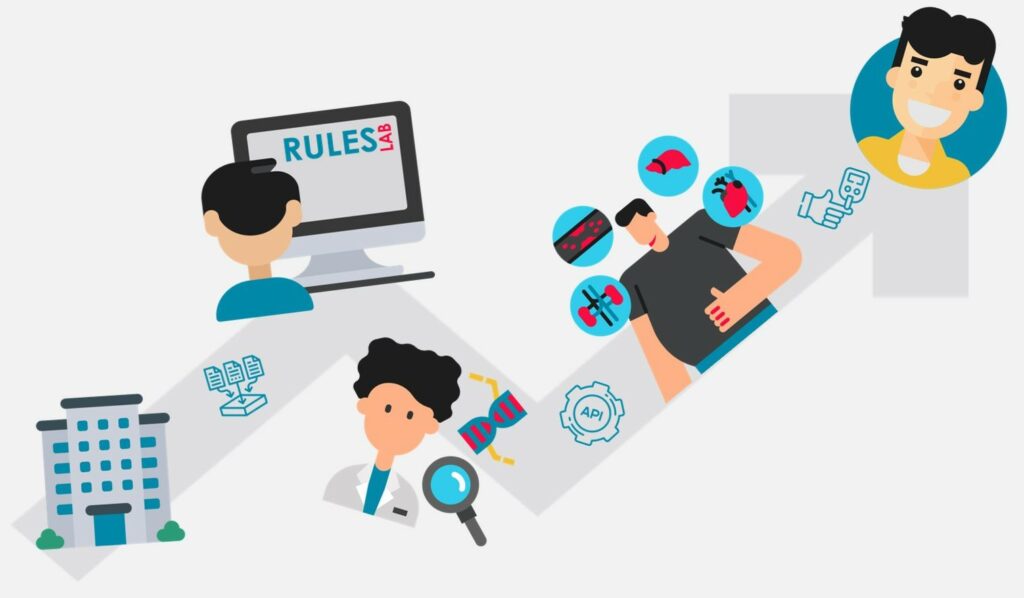
RulesLab was privileged to participate in Victoria University’s Summer-Tech program that helps Victorian SMEs solve technology problems by matching them with ICT tertiary students and an academic supervisor.
Students and recent graduates participating in the program spend 10 to 12 weeks immersed in a workplace, applying their skills to real-world challenges.
Given the advances in data analytics and artificial intelligence (AI), RulesLab initiated a 12-week project aimed at generating rule applications (expert systems) from domain-based datasets.
The generated rule applications could then be exposed to consumers or consuming APIs instantly, providing immediate value and return on investment.
The journey
In line with the project group’s interest, diabetes was selected as the initial dataset. The dataset was sourced via a Google search from Informatics Education. The 2023 data was originally from a biostatics program at Vanderbilt University in Tennessee, USA. Working with the students, we experimented with various technologies to generate a decision tree from the training dataset and used that to generate a rule and application structure that can be imported into RulesLab.
After tinkering with Open Rules Decision Manager, Rule-Learner and Weka, we decided to use Weka (Waikato environment for knowledge analysis), an open-source machine learning software, developed by Waikato University in New Zealand. Weka provided superior documentation and was the most compatible with the Java-based RulesLab source code.
We used the Weka API to create a module that enables a user to upload a .csv dataset file containing multiple predictor variables and a single categorical outcome variable. The module then triggers the J48 classification algorithm, producing a decision tree, which the module converts into a model consisting of a set of rules in the format of “If condition A AND if condition B AND … THEN outcome x”.
The module then imports the model into RulesLab as a single domain-based application. The application can be deployed to the RulesLab engine and is immediately available as a Rest API to be called by consuming applications.
The outcome
The project’s objective of creating a demonstrable prototype that leverages AI technology to generate rules applications was achieved with relative ease, thanks to the skills and enthusiasm of the student team and the support of Victoria University and the Victorian Government.
